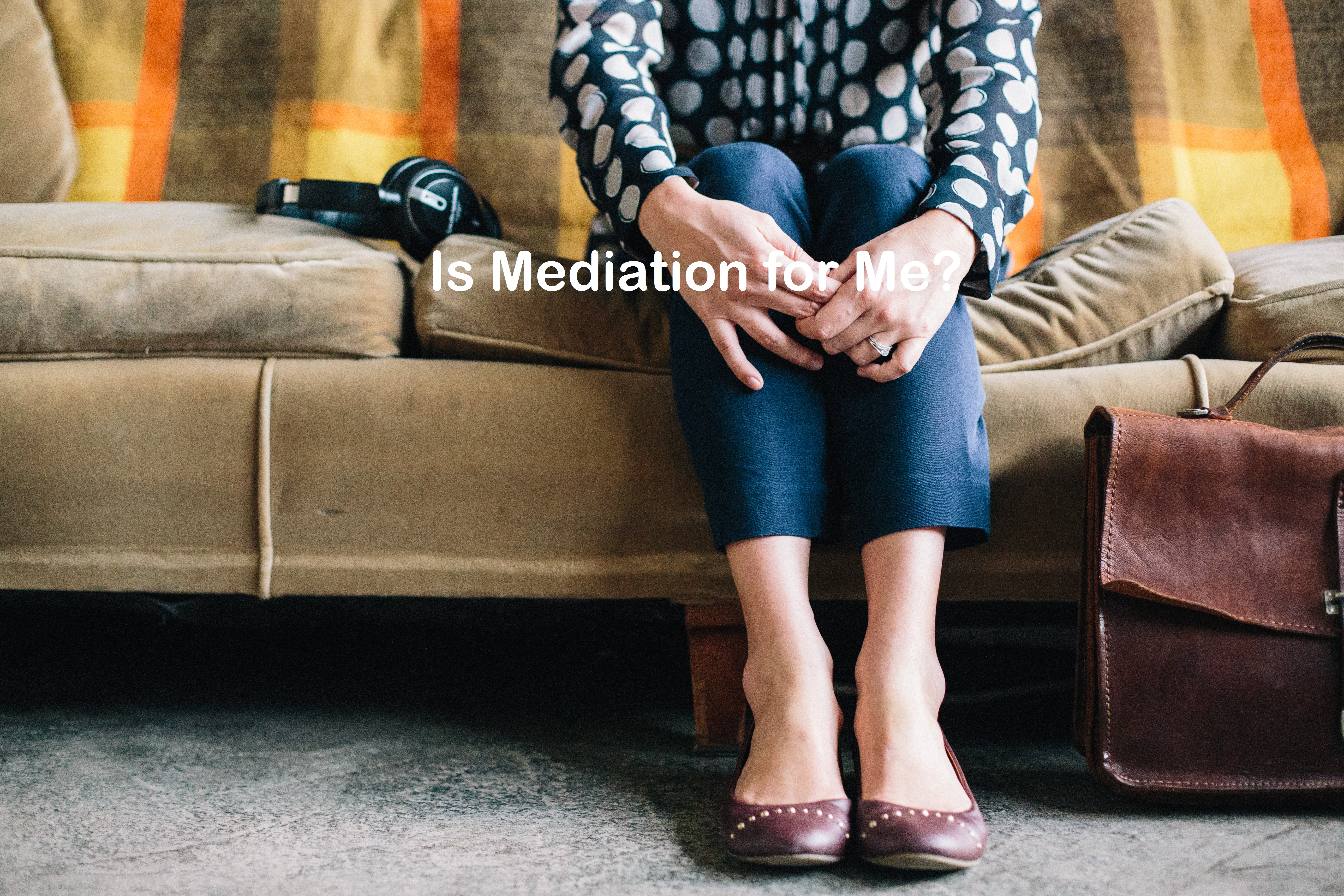 Is Mediation for Me?
Is Mediation for Me?
I’m angry, confused, hurt, and feeling vulnerable, so I need to go the contested route, right? I’m not feeling polite or civil, I don’t know what’s fair, so I can’t mediate, can I? My spouse handled all the money, I don’t know how to manage finances, he or she is a much better negotiator than I am, don’t people like me “belong” in the contested court system so that a judge can do what’s right for me (and maybe even let my spouse know how wrong he or she has been in the process)?
If I could change just one misconception about mediation, it would be that it is just for the perfectly polite, the impossibly civil, the politically correct – those who already know what they want their agreement to say. Although of course mediation can help these people too, let’s face it, those folks would be able to get through their conflicts pretty smoothly no matter what process they followed (assuming that the contested process didn’t inflame their emotions en route).
The couples who stand to get the most out of the process, the ones whose lives will be substantially better if they manage to sidestep the contested process, are precisely those who so often think (and are often told) that they don’t fit the profile. Mediators, good mediators, are more than scribes. We are at our best when working with those who are in conflict, cannot imagine a way out, aren’t feeling the least bit polite, and want to tell their partners all about it! As for inequality at the bargaining table, a large part of what we do is develop a process that allows for the education of each participant – education as to the finances, education as to the needs of the children, education as to the hopes of each of the parents. We help to create a level playing field for fair and constructive negotiation. If you want your children to come through this in the healthiest possible way, then you will need to build a working relationship with your soon-to-be ex-spouse, and mediation is a fine place to begin. If you don’t have children, the odds are good that you would prefer to move ahead with your life on positive footing. It’s easier to do that when you’re not still wedded to your anger. Bitterness is expensive, in the long run, and isolating.
There are opportunities for breakthroughs like this in the contested court process and do you know where they are? At the very end of the litigation, at the final meeting before trial, often referred to as “the Four-Way Meeting”. After months of gladiatorial combat, the court rules require the parties and the lawyers to sit down, face to face, and make a good faith attempt to reach agreement. Lawyers pour everything into these meetings and, more often than not, settlement is reached, right on the eve of trial. Maybe that doesn’t seem surprising to you, but more than a few of us have noticed that a kind of “magic” descends on the room when the litigants are present with one another, face to face. Some of it is, undoubtedly, fatigue (litigation is bruising and expensive), but many of us think we see something more at work. No matter how bitter the recriminations, no matter how horrible the combat in the preceding months, there is something a little bit wondrous about these meetings – and about the obvious desire of litigants to finally put down the sword, let the arguments about the past stay in the past, and get on with the business of living.
That’s how most contested divorces are resolved. Rarely do they go to trial.
If that’s the case, then why not take what’s best about that Four-Way meeting dynamic and use that to create an agreement sooner in the process, maybe even before you’ve each done major damage to your ongoing relationship?
Having said this, I do want you to know that there are times when couples should not mediate. If you are in an abusive relationship, if you are afraid of your partner such that you would not be able to advocate for yourself, then you should not mediate. You will need all of the protections that the court system can supply, you will need an advocate who can negotiate for you. Even if there is no abuse, if you are incapable of negotiating on your own behalf, then you should not mediate. In all my years or practicing, I have only had to terminate one session for this reason. It doesn’t happen often, but it does happen.
On the other hand, do you want to be able to tell your partner how you feel and have him or her hear it? Do you want to retain some control over what happens to you, your children, your future relationship to your former partner? Oh yes, and to be able to obtain your divorce for a fraction of what you’d pay if you each hired your own lawyers for a contested action? Then you should look carefully at mediation as an alternative to a contested divorce. Call us at 1-978-264-0695 or email us.
